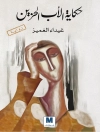The book addresses the very topical subject of citizen making. By delving into a range of sources – among them survey questions, historical documents, political theory, architectural design, and public policy – the book provides a unique analysis of when and why citizenship has taken root in India. Each chapter highlights the constant innovation of citizenship that has occurred in India’s legal, political, social, economic and aesthetic arrangements as well as providing the basis for comparative analysis across South Asian cases and the European Union.
Daftar Isi
Introduction: Citizenship today—Shifting Paradigms, Hybridization, or plus ça change?.- Part I: Reimagining the liberal canon.- From T. H. Marshall to Jawaharlal Nehru: Citizenship as Vision and Strategy.- Reluctant and Excluded Citizens, Differentiated and Multilevel Citizenship—Where the Indian and the European Discourse on Citizenship Meet.- Turning Aliens into Citizens: A “Toolkit” for a Transdisciplinary Policy Analysis.- Part II: Citizenship in National and Transnational Contexts: The European Union, Sri Lanka, and India.- European Citizenship: A Concept of Interrelatedness and Conditionality.- Who is a Citizen? A Multidimensional Question.- Citizenship in India: Evolution, Involution, and Rational Construction.- Part III: Flow differentiated: Belief, Education, Class, Tribe, and Space.- The Effects of Globalisation on Citizenship in India—The Changing Role of Education.- Transnational Religion and Flexible Citizenship in Britain and India.- Globalisation, Economic Citizenship, and India’s Inclusive Developmentalism.- Inheritance of Kingly Citizenship: Tribals at Crossroads in the Modern State of Orissa.- Building Citizenship: The Agency of Public Buildings and Urban Planning in the Making of the Indian Citizen.












